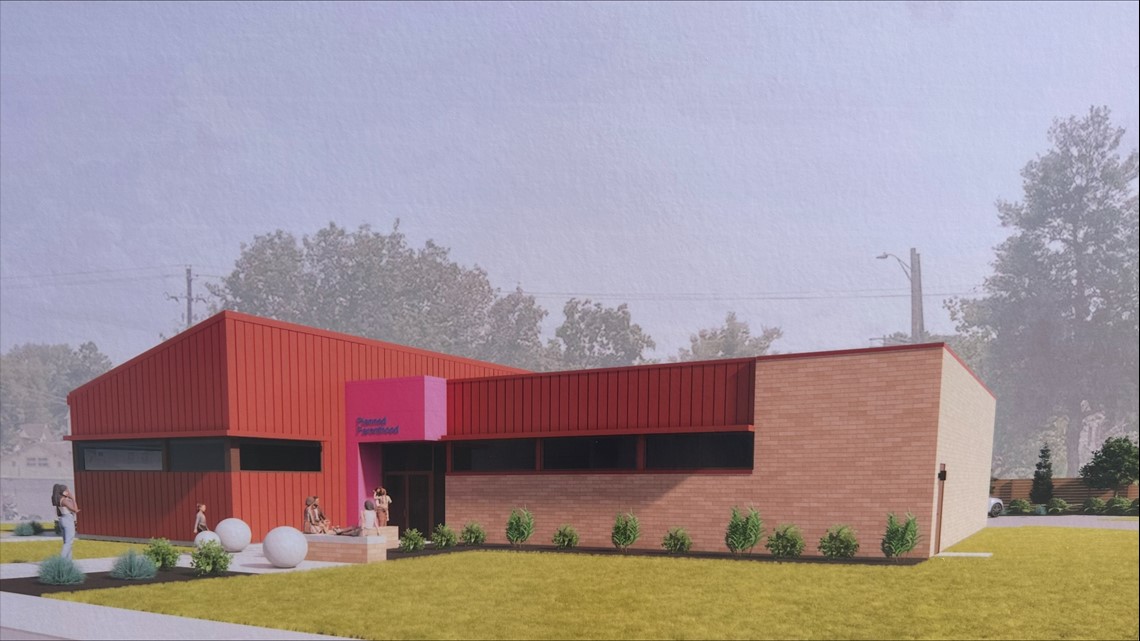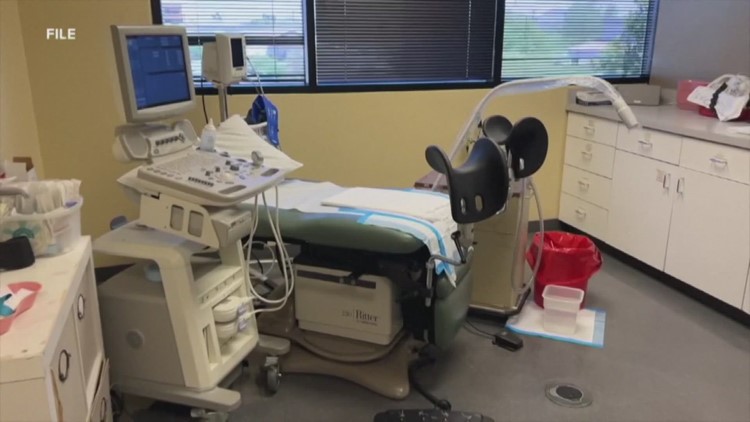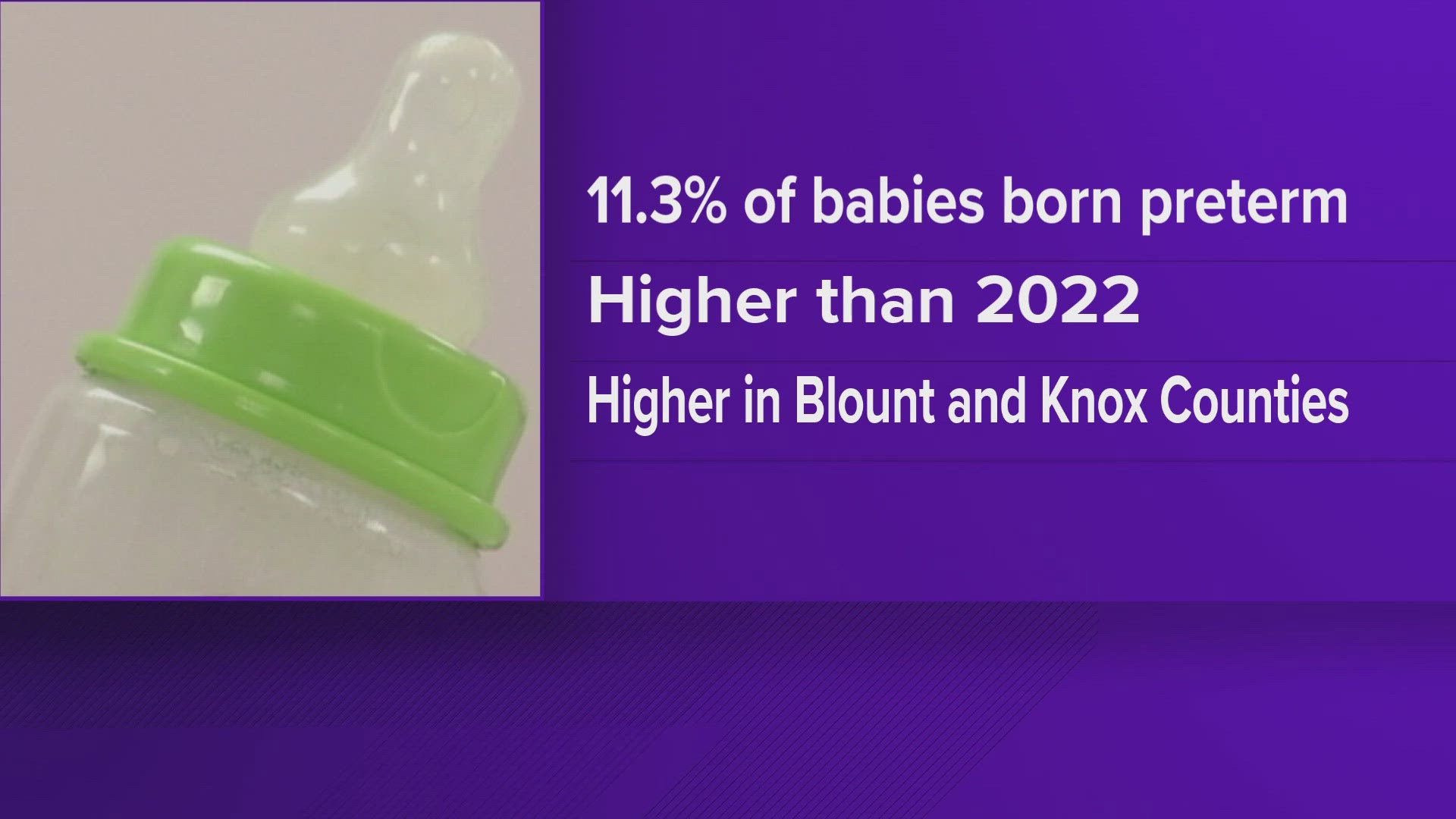KNOXVILLE, Tenn. — Around a year has passed since the Supreme Court decided to no longer guarantee pregnant people could receive abortion treatments across the U.S. After its June 2022 decision, laws went into effect that almost outright banned the procedure in Tennessee.
Planned Parenthood leaders held a press conference on Thursday to discuss the impact the decision has had, and how they were still working to guarantee people could access healthcare.
"One year ago, Tennessee faced an instant health emergency for pregnant people. When we became a forced birth state. It is more dangerous and more deadly to be pregnant in Tennessee. If you're pregnant, you shouldn't travel here and if you live here, you might have to travel out of state for life-saving care," said Ashley Coffield, the Planned Parenthood of Tennessee and North Mississippi CEO.
Two laws were on the books in Tennessee. The first, known as the state's "trigger law," went into effect almost immediately after the Supreme Court's decision. It was known as the "Heartbeat Bill," which created restrictions on abortion treatments and made them illegal six weeks after gestational age if the fetus had cardiac activity, and outright banned them after eight weeks of gestational age.
The state also passed the "Human Life Protection Act" in 2019, which went into effect in the weeks following the decision. It made providing abortion treatments a felony in the state. Since it would be a felony, people who give abortion treatments could lose voting rights and face several other consequences, including fines or prison time.
It also specifically did not try to punish women who receive abortion treatments. It allowed abortion treatments if the mother's life would be at risk, but specifically excludes cases where a provider treats someone by giving them an abortion because they could attempt to kill themselves. Abortions in those cases are illegal.
In April 2023, Governor Bill Lee signed a law that included extremely narrow exemptions for abortion treatments: an ectopic pregnancy or a molar pregnancy.
Planned Parenthood of Tennessee and North Mississippi previously said that the law would do little to allow more abortion treatments. It also did not add exceptions for cases of rape or incest.
"This is a burden on everyone and raises real questions like, 'How much do I control my own life, compared to the government or to a lawmaker who barely understands my my biology, my values my family?' The reality of abortion bans is far more devastating and inhumane than many people really understood a year ago," said Coffield.
She said that since the decision, the state has abruptly cut federal funds for HIV prevention and banned gender-affirming care for transgender youth.
"They proved that they will abandon democracy to eliminate dissent. We expect more criminalization and more intimidation going forward," she said. "It's a scary time."
On the last day of 2021, a Planned Parenthood clinic in Knoxville was burned down. It was ruled arson, and authorities said Mark Reno, from Jefferson City, was responsible for it. The year before, they said he had shot an "incendiary projectile" from a shotgun into the clinic. He died while in jail custody in August 2022, according to authorities.
Before dying, Reno told a plain-clothed KFD investigator that he was part of a group called the "Church Militant Resistance."
Since then, Planned Parenthood has taken steps to rebuild. Coffield said they have opened a mobile health unit in Knoxville to continue healthcare services there, and they are starting construction on a new health center building expected to open in 2024. The mobile health unit operates five days a week and Coffield said patient numbers are going up.
They also said they are waiting on the final permits from Knoxville to start construction, which they hope to start before the end of summer.





